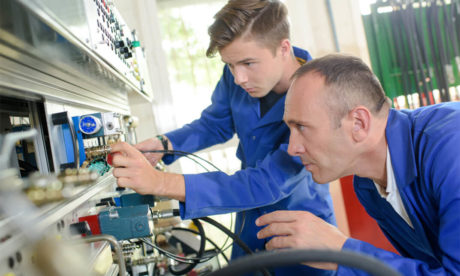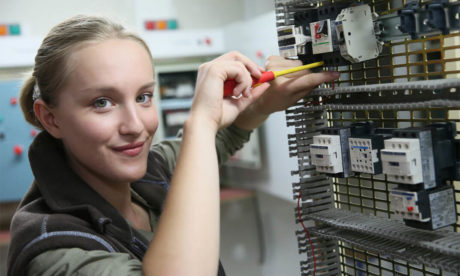This course provides the insights and tools for biotechnological processes design in a sustainable way. Throughout this course, you will be challenged to design your own biotechnological process and evaluate its performance and sustainability. Some topics such as fossil-based fuels and raw materials contribute to climate change, the use of renewable materials and energy as an alternative is in full swing will also be given priority.
Assessment
This course does not involve any written exams. Students need to answer 5 assignment questions to complete the course, the answers will be in the form of written work in pdf or word. Students can write the answers in their own time. Each answer needs to be 200 words (1 Page). Once the answers are submitted, the tutor will check and assess the work.
Certification
Edukite courses are free to study. To successfully complete a course you must submit all the assignment of the course as part of the assessment. Upon successful completion of a course, you can choose to make your achievement formal by obtaining your Certificate at a cost of £49.
Having an Official Edukite Certification is a great way to celebrate and share your success. You can:
- Add the certificate to your CV or resume and brighten up your career
- Show it to prove your success
Course Credit: TU Delft
Course Curriculum
| Biotechnology for Biobased Products | |||
| Biotechnology for Biobased Products | 00:01:00 | ||
| 2.1 Microorganisms and their Function in Nature | 00:09:00 | ||
| 2.2 Functional Understanding of Nutrient Requirements for Microbial Growth | 00:11:00 | ||
| 2.3 Learning about the Process: Broth Balances | 00:12:00 | ||
| 2.4 Learning about the Process: Gas Phase Balances | 00:10:00 | ||
| 2.5 Learning about the Microorganism: Q-rates and Chemostat | 00:11:00 | ||
| 2.6 Learning about the Process and Organism: Batch | 00:09:00 | ||
| 1A – Semi-synthetic Artemisinin Production | 00:09:00 | ||
| 1B – Semi-synthetic Artemisinin Production | 00:08:00 | ||
| Balances and Microbial Rates | |||
| Balances and Microbial Rates | 00:01:00 | ||
| 1.1 Why Develop the Biobased Economy? | 00:08:00 | ||
| 1.2 Industrial Biotechnology | 00:06:00 | ||
| 1.3 Feedstock for Biobased Products | 00:10:00 | ||
| 1.4 The Benefits for Society | 00:07:00 | ||
| Banana #1 | 00:06:00 | ||
| Banana #2 | 00:08:00 | ||
| Banana #3 | 00:07:00 | ||
| Banana #4 | 00:09:00 | ||
| 2A – Exploiting Natures Biodiversity | 00:07:00 | ||
| 2B – Application of Mixed Cultures | 00:11:00 | ||
| The Black Box Model and Process Reaction | |||
| 3.1 The Process Reaction | 00:08:00 | ||
| 3.2 Basics of the Black Box Model | 00:10:00 | ||
| 3.3 Energy Consuming and Energy Producing Products | 00:11:00 | ||
| 3.4 A PDO Black Box Model: Experiments for Parameter Identification | 00:11:00 | ||
| 3.5 Black Box Models: The PDO Process Reaction as a Function of Mu | 00:10:00 | ||
| 3.6 PDO Continuous Process Design: Calculation of Inputs and Outputs Using the Process Reaction | 00:11:00 | ||
| 3.7 Aerobic PDO Process: Improving Sustainability | 00:11:00 | ||
| 3 – Bioethanol in Brazil | 00:12:00 | ||
| Fermentation Design | |||
| Fermentation Design | 00:01:00 | ||
| 4.1 Introduction to Fermentation Technology | 00:10:00 | ||
| 4.2 The Large-scale Fermenter | 00:08:00 | ||
| 4.3 Fermenter Operation | 00:11:00 | ||
| 4.4 Gas Transport | 00:12:00 | ||
| 4.5 Heat Transport | 00:08:00 | ||
| 4.6 Mixing | 00:11:00 | ||
| 4.7 Basic Approach to Design and Optimize a PDO Fermentation Process | 00:12:00 | ||
| Best Practice 4a: Industrial Process Development for Succinic Acid: Introduction | 00:06:00 | ||
| Best Practice 4b: Industrial Process Development for Succinic Acid: The Process | 00:07:00 | ||
| Best Practice 4c: Industrial Process Development for Succinic Acid: Industrial Scale | 00:04:00 | ||
| Closing Lecture | |||
| Closing Lecture | 00:10:00 | ||
| Up- and Downstream Process Integration | |||
| Up- and Downstream Process Integration | 00:01:00 | ||
| 5.1 Towards an Integrated Bioprocess | 00:10:00 | ||
| 5.2 Upstream Processing | 00:09:00 | ||
| 5.3 Separation and Formulation | 00:11:00 | ||
| 5.4 Separation Principles | 00:10:00 | ||
| 5.5 Conceptual Process Design for 1,3 PDO Production | 00:09:00 | ||
| 5.6 Process Integration for 1,3 PDO Production | 00:11:00 | ||
| Best Practice 5: Self Healing Concrete | 00:16:00 | ||
| Process Evaluation and Sustainability | |||
| Process Evaluation and Sustainability | 00:01:00 | ||
| An Interview with Monique de Moel (Port of Rotterdam) | 00:10:00 | ||
| 6a: Production of 1G Bioethanol in Brazil | 00:09:00 | ||
| 6b: Sustainability of 1G Bioethanol in Brazil | 00:12:00 | ||
| Assessment | |||
| Submit Your Assignment | 00:00:00 | ||
| Certification | 00:00:00 | ||
Course Reviews
No Reviews found for this course.






